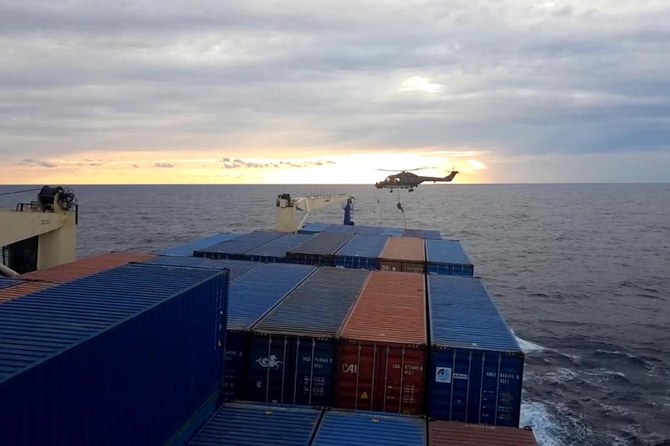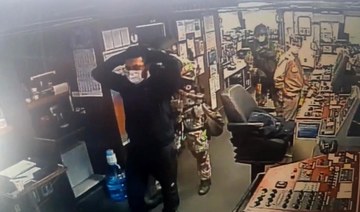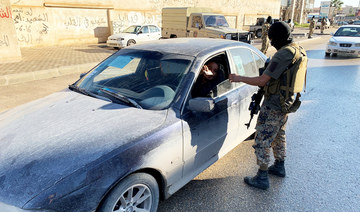BERLIN: Germany’s defense minister on Tuesday rejected Turkey’s complaints over the search of a Turkish freighter in the Mediterranean Sea by a German frigate participating in a European mission, insisting that German sailors acted correctly.
Sunday’s incident prompted Turkey to summon diplomats representing the European Union, Germany and Italy and assert that the Libya-bound freighter Rosaline-A was subjected to an “illegal” search by personnel from the German frigate Hamburg. The German ship is part of the European Union’s Irini naval mission, which is enforcing an arms embargo against Libya.
German officials say that the order to board the ship came from Irini’s headquarters in Rome and that Turkey protested while the team was on board. The search was then ended.
Turkey says the search was “unauthorized and conducted by force.”
German Defense Minister Annegret Kramp-Karrenbauer backed the German crew’s actions.
“It is important to me to make really clear that the Bundeswehr soldiers behaved completely correctly,” she said during an appearance in Berlin. “They did what is asked of them in the framework of the European Irini mandate.”
“That there is this debate with the Turkish side points to one of the fundamental problems of this European mission,” Kramp-Karrenbauer added, without elaborating. “But it is very important to me to say clearly here that there are no grounds for these accusations that are now being made against the soldiers.”
This was the second incident between Turkey and naval forces from a NATO ally enforcing an arms blockade against Libya.
In June, NATO launched an investigation over an incident between Turkish warships and a French naval vessel in the Mediterranean, after France said one of its frigates was “lit up” three times by Turkish naval targeting radar when it tried to approach a Turkish civilian ship suspected of involvement in arms trafficking.
Turkey supports a UN-backed government in Tripoli against rival forces based in the country’s east. It has complained that the EU naval operation focuses its efforts too much on the Tripoli administration and turns a blind eye to weapons sent to the eastern-based forces.
In Ankara, Turkish Defense Minister Hulusi Akar said that Irini was “flawed from the onset.”
“It is not based on firm international legal foundations,” Akar said. He renewed Turkey’s criticism of the German ship’s actions.
“The incident was against international laws and practices. It was wrong,” he said.
Kramp-Karrenbauer stressed that “Turkey is still an important partner for us in NATO.” Turkey being outside the military alliance would make the situation even more difficult, she argued, and Turkish soldiers are “absolutely reliable partners” in NATO missions.
But she conceded that Turkey poses “a big challenge” because of how its domestic politics have developed and because it has its “own agenda, which is difficult to reconcile with European questions in particular.”


























